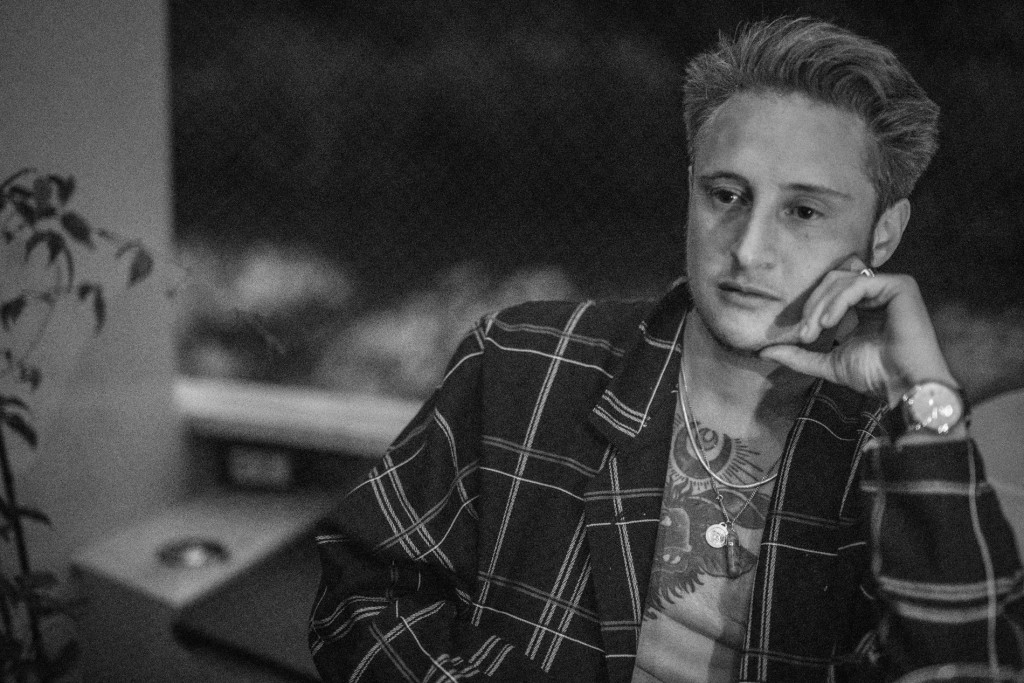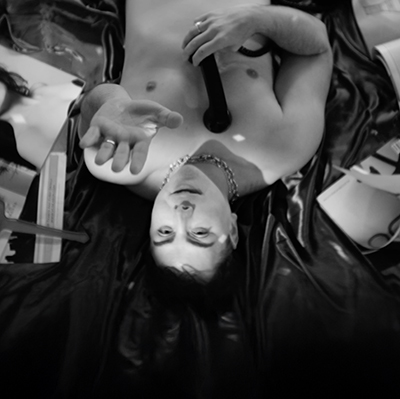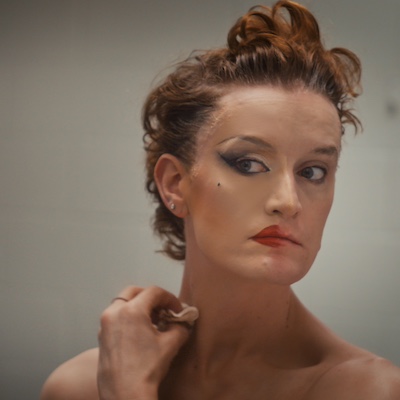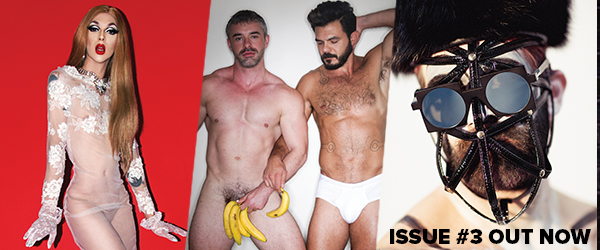
"It's really important to me to show a complex and deeply flawed trans character, an anti-hero"
Queer theatre is having something of a magnificent renaissance in London at the moment with works by Nando Messias, Dickie Beau, Scottee, and Le John Joseph, (amongst many others) doing the rounds and leaving audiences moved, in awe, and talking about our queer lives. So, Loverboy’s art critic Fallon Gold was super excited to hear of a new work that’s a collaborative piece between Kit Redstone and physical theatre group Rhum and Clay. She caught up with Kit to talk about the show, masculinity, and telling trans stories.
Tell us about Testosterone
Testosterone is a show that grew out of a conversation between myself and Julian from Rhum and Clay. We were talking about my transition from female to male and the things I had noticed about masculinity and the social changes I had not necessarily anticipated. We wanted to create a show that focused on the larger issue of masculinity, but through the eyes of a trans male character. The show is a collaboration between myself, Rhum and Clay, and theatrical performer Daniel Jacobson. We focused on a brief incident in a changing room and from that built a kind of anti-narrative around fantasies, stories and perceptions of other men with the changing room and the men in it as an anchor for the piece. In a sense, it is this trans male character’s quest for understanding of both himself and the men around him.
What is your performance background?
My background is quite eclectic. I began with an English Literature degree then went on to drama school before working as an actor. I was really keen to make my own work so went to Goldsmiths to do a masters in Performance Making. After this I started working with some fellow students and we formed Vacuum Theatre. We have been making playful and very untraditional theatre work for the past four years.
Trans stories are being told now more than ever; how important is it to bring your story to an audience?
I couldn’t be happier about the explosion of trans stories we are hearing now. It is certainly about time that the trans community has a platform for its varying voices. The story we are telling in Testosterone is important because it is not about the act of transition itself, it is about making sense of the world through the eyes of that experience. So in a sense it is a unique story, I feel. It has also been really important to me to show a complex and deeply flawed trans character, an anti-hero if you will. I feel that there is a tendency with trans narratives to focus on the struggles of transition, and while that is a worthy narrative, I feel it is also important to probe new territory. And to have stories about empowerment rather than victimhood.
Questions of gender and masculinity have also been highlighted by trans experiences. Do you see a more general move towards openness in discussing what it means to ‘be a man’?
Yes, I think that these discussions are now coming to the mainstream in ways that they never did before. We have a whole new generation who see both gender and sexuality in a much more complex and varied way than even my own generation. In some ways, there are times that I feel old-school in comparison! I am also delighted to see a wider discourse around masculinity as a topic and much less tolerance of toxic masculinity and misogyny. Clearly, we have much further to go, but I do see progress being made and that gives me hope for the future.
There’s also a lot of (much needed) discussion in the queer community at the moment about queer culture and the idea of ‘masc’ and ‘macho’. Do you address this complexity of queer masculine identity in Testostorone?
Yes most definitely – I allow my character (a kind of version of myself) to explore masculinity and in doing so reveal some rather dark toxic facets to my character’s masculinity, like enjoying feelings of power and also in one moment casting judgement on another trans character during a story. It’s been really important for me to present a flawed and fully rounded character who is in as much danger of becoming a ‘bad’ man as my cis counterparts.

What’s next for you?
I’ve been commissioned to write a new show for director Lina Hoelscher, which will be on in January at Graz’s National Theatre. I am also developing a new piece with my own theatre company at the Battersea Arts Centre next spring.
What’s your favourite Mariah Carey Song?
Is there any debate? Always Be My Baby, of course!
Testosterone is on at New Diorama Theatre from 22 November to 3 December
Images by Daniel Regan









